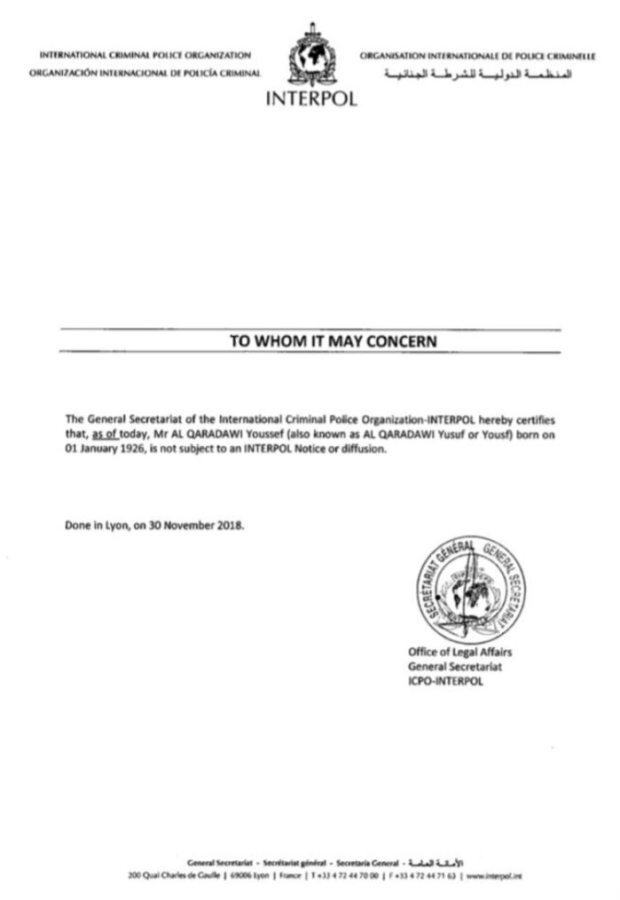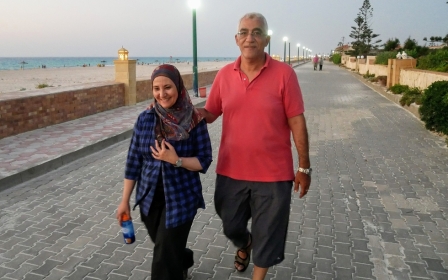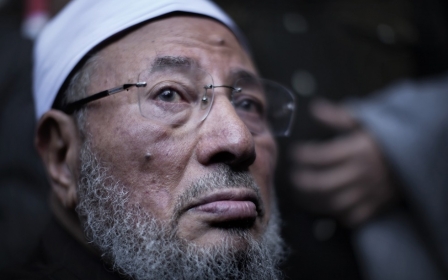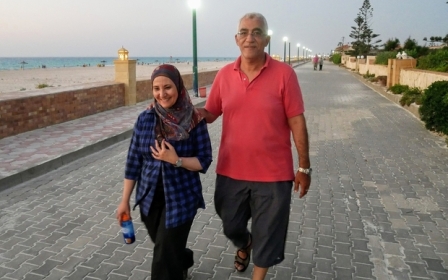Egyptian cleric Yousef al-Qaradawi removed from Interpol 'wanted' list
Interpol has removed Egyptian Islamic scholar and government critic Yousef al-Qaradawi from its “wanted” list after finding that cases brought against him by Egypt and Iraq are “politically motivated”.
According to a statement by his lawyer Rodney Dixon QC, all arrest warrants against Qaradawi have now been annulled and he is free to travel.
Egypt has charged the Doha-based scholar and head of the International Union of Islamic Scholars with a range of terror-related accusations following the 2013 coup led by general-turned-president Abdel Fattah al-Sisi.
Qaradawi was sentenced to death in absentia, and Egyptian authorities contacted Interpol to issue international arrest warrants for him.
According to Saudi-backed news site Al-Arabiya, Iraq had accused Qaradawi of inciting for the murder of former Iraqi prime minister Nouri al-Maliki in 2013.
Qaradawi welcomed the decision in a statement on Thursday, urging the international criminal police organisation to review all other red notices issued against opponents of the Sisi government.
According to Dixon, Interpol has found that the charges against Qaradawi were “predominately of a political character” and that the trial violated due process, and that extradition to Egypt could preclude a fair trial.
The lawyer added that Interpol cited the case of Qaradawi’s daughter and son-in-law’s detention in Egypt, and “raises strong concern as to the likelihood that the applicant [Qaradawi] may be subject to a similar treatment of that of his relatives.”
The couple are legal US permanent residents and have many family members who are US citizens.
Congressional letter
On Wednesday, a bipartisan group of United States lawmakers raised concerns about the arbitrary detention of more than a dozen US citizens and permanent residents in Egypt, including Qaradawi’s daughter Ola al-Qaradawi and her husband, Hosam Khalaf who have been detained without charge or trial since June 2017.
In a letter to US Secretary of State Mike Pompeo, 46 members of the US House of Representatives said they "cannot ignore abuses of fundamental human rights" under Egyptian President Abdel Fattah al-Sisi's government.
“There are an estimated 15 or more US citizens … and legal permanent residents who are still detained in horrendous conditions and deprived of fundamental due process rights,” reads the letter, signed by Republican Congresswoman Ileana Ros-Lehtinen and Democratic Congressman Ted Deutch, among others.
The lawmakers said the couple's detention "lacks a legal basis," citing a United Nations Working Group on Arbitrary Detention report.
Last week, Qaradawi's granddaughter, Aayah Hosam, helped launch an email-writing campaign to urge members of Congress to apply pressure on Egypt to release the couple.
Hosam told Middle East Eye at the time that the US State Department and President Donald Trump's administration "have the power" to get them released.
"They do have the leverage, but they're not using it the way they should," Hosam said.
Qaradawi, an influential Sunni Muslim scholar, was a backer of the 2011 revolution against Hosni Mubarak and an opponent of the 2013 coup against president Mohamed Morsi who hails from the Muslim Brotherhood.
The preacher is often described by Saudi media as a leader of the Muslim Brotherhood, but he says he holds no official position in the group, now labelled as terrorist by Egypt and Saudi Arabia.
It was for his political views in support of the Arab Spring and defence of Morsi and the Brotherhood that Qaradawi became one of many scholars blacklisted by a Saudi-led bloc in the 2017 feud between Qatar and its Gulf neighbours over Qatar’s alleged support for terrorism.
New MEE newsletter: Jerusalem Dispatch
Sign up to get the latest insights and analysis on Israel-Palestine, alongside Turkey Unpacked and other MEE newsletters
Middle East Eye delivers independent and unrivalled coverage and analysis of the Middle East, North Africa and beyond. To learn more about republishing this content and the associated fees, please fill out this form. More about MEE can be found here.





